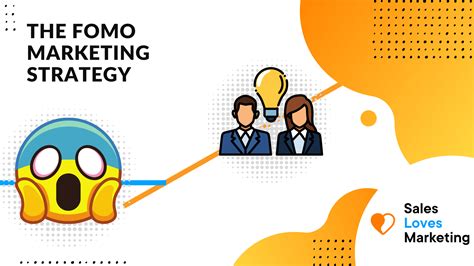In the realm of sales and marketing, the fear of missing out, or FOMO, has long been hailed as a strategic cornerstone. The principle itself is straightforward: leveraging the human tendency to avoid losing out on opportunities can stimulate immediate action. While some argue that it is nothing new or overly simplistic, the *nuanced deployment* of FOMO can create powerful psychological incentives that drive consumer behavior in unparalleled ways.
Scarcity and FOMO, while sometimes conflated, are not identical in application. Scarcity hinges on the limited availability of a resource, creating a competitive urgency among potential buyers to prioritize the acquisition. For example, consider Apple’s product launches where *limited initial stock* creates a rush. The scarcity here is straightforward—products are in limited supply, which drives an urgency to buy before they run out. FOMO, however, engages a different psychological switch. It’s about the apprehension of missing out on an experience or opportunity rather than just a product. Imagine a countdown timer on an e-commerce site for a special one-day discount; it’s not just the quantity that’s limited but also the time, creating a dual layer of urgency.
Commenters in a recent discussion have dissected these distinctions with clarity, highlighting that *urgency* is another pivotal factor often mixed with scarcity and FOMO. For instance, in software engineering (SWE), as one commenter points out, incorrect or false abstractions in software design can lead to similar outcomes. Essentially, the overlaps and distinctions between these concepts converge on the same point: driving consumer action now, rather than later. This urgency can be seen in classroom enrollments, flash sales, and even online ad campaigns with expiration timers.
Beyond theoretical differences, practical strategies driven by FOMO often involve a more calculated approach. Real-world applications demonstrate that integrating social proof, another psychological driver, can significantly boost sales. EGreg, a seasoned commentator, underscores that buyers often depend on **social proof**—testimonials, peer pressure, community relationship—much more than the fear of missing out. Providing a detailed list that includes social capital access and time investment strategies illustrates how deep-rooted these mechanisms can be in consumer psychology.
Indeed, consumer psychology is rife with examples where FOMO has had dramatic effects on buyer behavior. A case in point discussed was the workings of Groupon and similar platforms, which thrive on the timely, fleeting deals that create a sense of urgency and rare opportunities. Or consider the boost in sales Agoda saw by placing a countdown timer on the booking page, enhancing bookings by a whole 1%. This boosts the argument that even a seemingly small increment in urgency can deliver significant improvements in sales metrics.
However, it is essential to understand that not all consumer contexts align with FOMO-based strategies. For example, business-to-business (B2B) environments often emphasize trust and long-term relationships over immediate sales tactics. As a commenter notes, conservative business customers usually have more fear of getting in than of missing out. Trust becomes the overriding principle, as evidenced by companies reluctant to move away from established service providers like AWS despite potentially better deals elsewhere due to existing, strong relationships.
Finally, while embracing FOMO can indeed drive sales, it’s imperative to balance it without undermining trust or creating unrealistic expectations. Transparency, authentic testimonials, and genuine urgency can maintain customer loyalty even when leveraging FOMO. For long-term success, firms need to navigate these psychological tactics with care, ensuring they don’t alienate their customer base. The evolving application of FOMO in today’s sales strategy landscape shows a dynamic blend of psychology and marketing, a synergy that, when used ethically, can profoundly impact consumer actions.


Leave a Reply